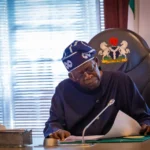
Dictionaries are the unofficial guardians written languages. My late father made me aware of this fact early in my educational career, and bought me my first English dictionary in my first year in secondary school. Using the mnemonic skills I learned from efforts to memorize the Qur’an, I immersed myself in dictionaries and memorized an incredibly vast corpus of words as a high school student. So my fascination with dictionaries goes way back.
The article you will read below by the London Guardian’s Andrew Dickson originally titled “Inside the OED: can the world’s biggest dictionary survive the internet?” was published February 23 and takes the reader into an exciting journey into the history and politics of English dictionaries. It also explores the fate of traditional dictionaries in our digital world. Enjoy:
In February 2009, a Twitter user called @popelizbet issued an apparently historic challenge to someone called Colin: she asked if he could “mansplain” a concept to her. History has not recorded if he did, indeed, proceed to mansplain. But the lexicographer Bernadette Paton, who excavated this exchange last summer, believed it was the first time anyone had used the word in recorded form. “It’s been deleted since, but we caught it,” Paton told me, with quiet satisfaction.
In her office at Oxford University Press, Paton was drafting a brand new entry for the Oxford English Dictionary. Also in her in-tray when I visited were the millennial-tinged usage of “snowflake”, which she had hunted down to a Christian text from 1983 (“You are a snowflake. There are no two of you alike”), and new shadings of the compound “self-made woman”. Around 30,000 such items are on the OED master list; another 7,000 more pile up annually. “Everyone thinks we’re very slow, but it’s actually rather fast,” Paton said. “Though admittedly a colleague did spend a year revising ‘go’”.
Spending 12 months tracing the history of a two-letter word seems dangerously close to folly. But the purpose of a historical dictionary such as the OED is to give such questions the solemnity they deserve. An Oxford lexicographer might need to snoop on Twitter spats from a decade ago; or they might have to piece together a painstaking biography of one of the oldest verbs in the language (the revised entry for “go” traces 537 separate senses over 1,000 years). “Well, we have to get things right,” the dictionary’s current chief editor, Michael Proffitt, told me.
At one level, few things are simpler than a dictionary: a list of the words people use or have used, with an explanation of what those words mean, or have meant. At the level that matters, though – the level that lexicographers fret and obsess about – few things could be more complex. Who used those words, where and when? How do you know? Which words do you include, and on what basis? How do you tease apart this sense from that? And what is “English” anyway?
In the case of a dictionary such as the OED – which claims to provide a “definitive” record of every single word in the language from 1000AD to the present day – the question is even larger: can a living language be comprehensively mapped, surveyed and described? Speaking to lexicographers makes one wary of using the word “literally”, but a definitive dictionary is, literally, impossible. No sooner have you reached the summit of the mountain than it has expanded another hundred feet. Then you realise it’s not even one mountain, but an interlocking series of ranges marching across the Earth. (In the age of “global English”, the metaphor seems apt.)
Even so, the quest to capture “the meaning of everything” – as the writer Simon Winchester described it in his book on the history of the OED – has absorbed generations of lexicographers, from the Victorian worthies who set up a “Committee to collect unregistered words in English” to the OED’s first proper editor, the indefatigable James Murray, who spent 36 years shepherding the first edition towards publication (before it killed him). The dream of the perfect dictionary goes back to the Enlightenment notion that by classifying and regulating language one could – just perhaps – distil the essence of human thought. In 1747, in his “Plan” for the English dictionary that he was about to commence, Samuel Johnson declared he would create nothing less than “a dictionary by which the pronunciation of our language may be fixed, and its attainment facilitated; by which its purity may be preserved, its use ascertained, and its duration lengthened”. English would not be merely listed in alphabetical order; it would be saved for eternity.
Ninety years after the first edition appeared, the OED – a distant, far bulkier descendant of Johnson’s Dictionary – is currently embarked on a third edition, a goliath project that involves overhauling every entry (many of which have not been touched since the late-Victorian era) and adding at least some of those 30,000 missing words, as well as making the dictionary into a fully digital resource. This was originally meant to be completed in 2000, then 2005, then 2010. Since then, OUP has quietly dropped mentions of a date. How far had they got, I asked Proffitt. “About 48%,” he replied.
The dictionary retains a quiet pride in the lexical lengths to which it will – indeed, must – go. Some time in the late 1980s, Proffitt’s predecessor as chief editor, John Simpson, asked the poet Benjamin Zephaniah about the origins of the noun “skanking”. Zephaniah decided that the only way to explain was to come to OED headquarters and do a private, one-on-one performance. Skanking duly went in, defined as “a style of West Indian dancing to reggae music, in which the body bends forward at the waist, and the knees are raised and the hands claw the air in time to the beat”.
The tale touches something profound: in capturing a word, a sliver of lived experience can be observed and defined. If only you were able to catch all the words, perhaps you could define existence.
The first English dictionary-makers had no fantasies about capturing an entire culture. In contrast to languages such as Chinese and ancient Greek, where systematic, dictionary-like works have existed for millennia, the earliest English lexicons didn’t begin to be assembled until the 16th century. They were piecemeal affairs, as befitted the language’s mongrel inheritance – a jumbled stew of old Anglo-Germanic, Norse, Latin and Greek, and Norman French.
The language was perplexing enough, but in the mid-1500s it was getting ever more confusing, as political upheavals and colonial trade brought fresh waves of immigration, and with it a babel of recently “Englished” vocabulary: words such as “alcohol” (Arabic via Latin, c1543) and “abandonment” (French, c1593). Scientific and medical developments added to the chaos. In 1582, the schoolmaster Richard Mulcaster issued a frantic plea for someone to “gather all the wordes which we use in our English tung … into one dictionarie”. Such a book would stabilise spelling, a source of violent disagreement. Also, there would finally be rules for “proper use”.
In 1604, a clergyman named Robert Cawdrey attempted a stopgap solution: a slender book entitled A Table Alphabeticall. Aimed at “Ladies, gentlewomen and other unskillful persons”, it listed approximately 2,500 “hard usuall words”, less than 5% of the lexis in use at the time. Definitions were vague – “diet” is described as “manner of foode” – and there were no illustrative quotations, still less any attempt at etymology. A Table Alphabeticall was so far from being completist that there weren’t even entries for the letter W.
Lexicographers kept trying to do better – and mostly kept failing. A new “word book” edited by John Bullokar appeared in 1616 (5,000 words); another by Henry Cockeram in 1623 (8,000 words and the first to call itself a “dictionary”); yet another by Thomas Blount in 1656 (11,000 words). But no one could seem to capture “all the wordes” in English, still less agree on what those words meant. The language was expanding more rapidly than ever. Where would you even start?
Comprehensive dictionaries had already been produced in French, Italian and Spanish; Britain’s failure to get its house in order was becoming an international embarrassment. In 1664, the Royal Society formed a 22-person committee for “improving the English language”, only to disband after a few meetings. In 1712, Jonathan Swift published a pamphlet on the subject, pouring scorn on sloppy usage and insisting that “some Method should be thought on for ascertaining and fixing our Language for ever” – arguing that English should not merely be exhaustively surveyed, but that its users should be forced to obey some rules. This task defeated everyone, too. It wasn’t until 1746, when a consortium of publishers managed to convince Samuel Johnson to take on this “great and arduous post”, that it seemed remotely likely to be completed.
Johnson’s Dictionary, eventually finished in 1755, was a heroic achievement. He corralled 43,500-odd words – perhaps 80% of the language in use at the time. But in some eyes, not least the editor’s, the book was also a heroic failure. In contrast to the jaunty Enlightenment optimism of his 1747 Plan, with its talk of “fixing” and “preservation”, the preface to the published Dictionary is a work of chastened realism. Johnson explains that the idea of taming a fast-evolving creature such as the English language is not only impossible, but risible:
“We laugh at the elixir that promises to prolong life to a thousand years; and with equal justice may the lexicographer be derided, who being able to produce no example of a nation that has preserved their words and phrases from mutability, shall imagine that his dictionary can embalm his language, and secure it from corruption and decay.”
Much as lexicographers might fantasise about capturing and fixing meaning – as Johnson had once fantasised – a living language will always outrun them.
 Join Daily Trust WhatsApp Community For Quick Access To News and Happenings Around You.
Join Daily Trust WhatsApp Community For Quick Access To News and Happenings Around You.


